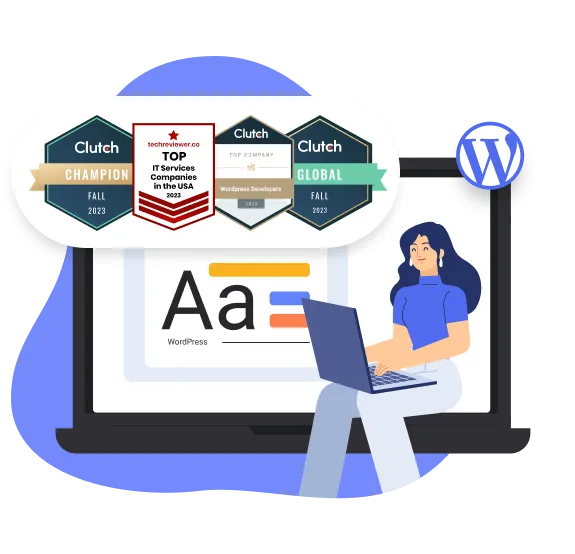


A WordPress development company offers expertise, time efficiency, customization options, and ongoing maintenance to help you build and maintain a professional website. Thorough research is important to choose a reputable provider that meets your needs and ensures a successful online presence.
Read more about GetDevDone's advantages as a WordPress development service and how we address the typical concerns of using a development company in our blog article: The Pros and Cons of Using a WordPress Website Development Company.
You can contact your dedicated project manager to get project status updates at any time during normal business hours. Also, feel free to choose any project management software that suits you to track the progress of our developers. This includes tools such as Jira, Trello, and many others.
Yes, we have our WordPress landing page development service that will provide you with an engaging, professional-looking landing page that renders perfectly across commonly used browsers and devices. That’s a surefire way to make your advertising campaigns a hit.
Sure, our WordPress developers can modify the theme or functionality of your current solution or add new features to it.
Our WordPress development rate is $42/hr. However, the total amount of the bill is determined by several factors: the number of pages your WordPress website includes, their layout, complexity, and more.
The ultimate cost also depends on the type of service you order. A custom WordPress Theme Development (WooCommerce theme development) is normally more expensive than a WordPress Theme Customization.
Just specify your requirements and we will get back to you with a precise quote and ETA one business day later at no cost to you.
Yes, if you decide to change your web hosting provider, we can help you make the migration process smooth and quick. More importantly, our WordPress developers will make sure that none of your data is lost in the process.
Sure thing. Our WooCommerce development is one of our most popular services. By integrating the WooCommerce plugin with your WordPress website, you get a convenient content management system that you can use to manage your WooCommerce-powered store easily.